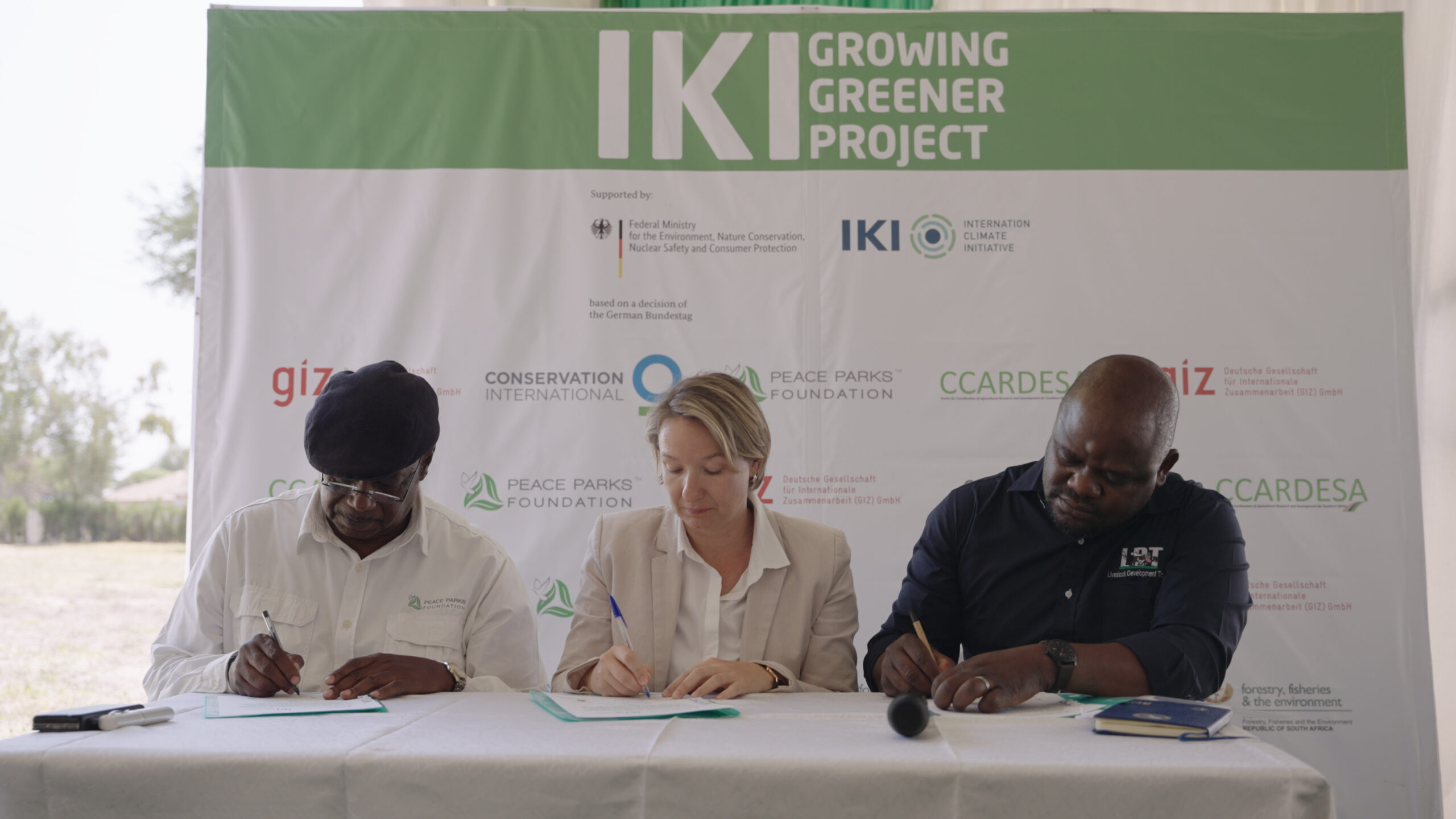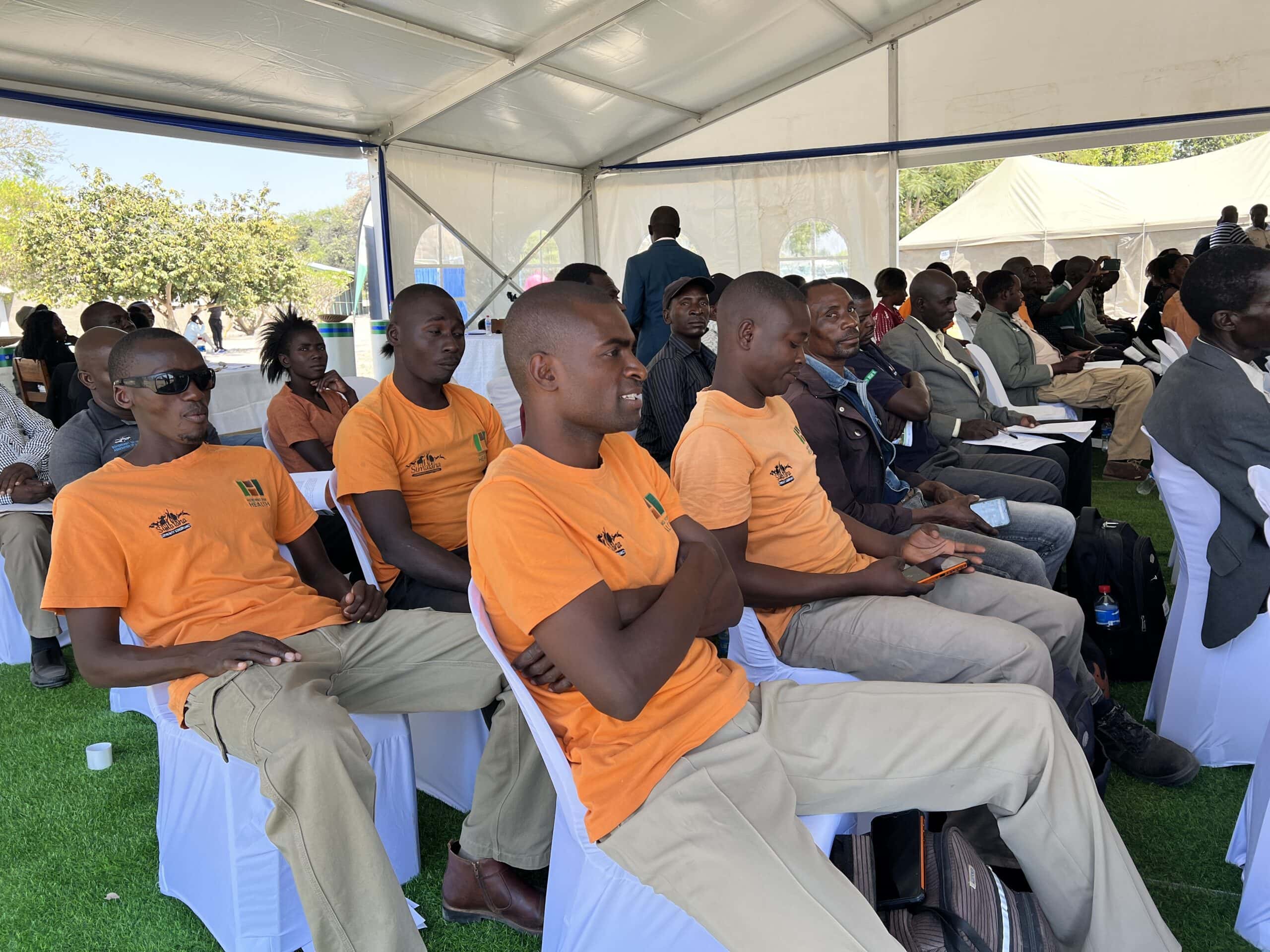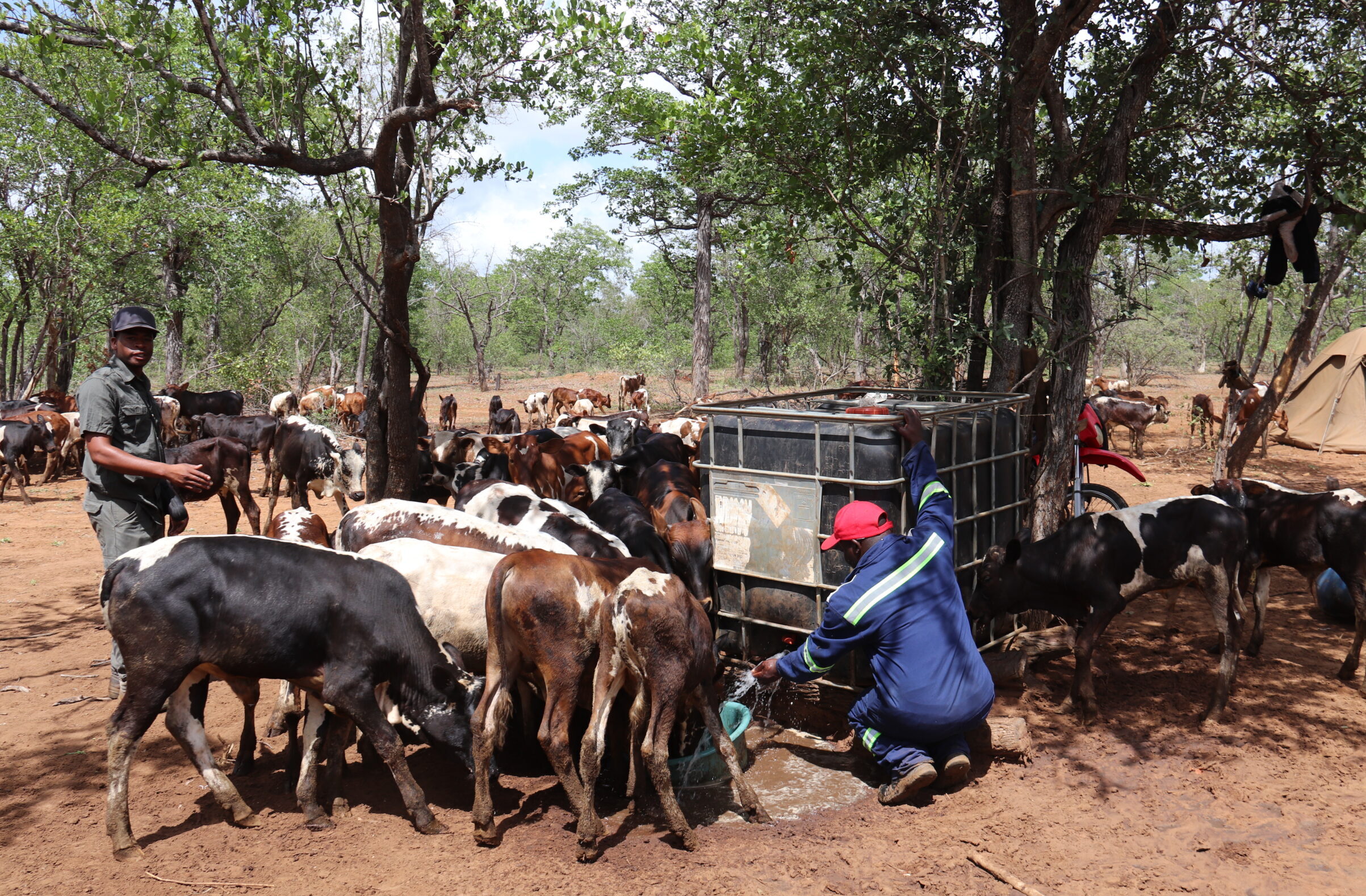The reality
Southern Africa is a largely rural landscape, where 75% of the land is classified as semi-arid or arid. As the climate in this region is affected by global shifts, over 45 million people in the Southern African Development Community (SADC) region are facing food insecurity.
This biodiverse continent, which is rich in global ecosystem services, is under pressure. Seventy percent of the population rely on small scale farming, with 45% of the region’s total land under unmanaged grazing. Soil degradation and desertification threaten 25% of productive land due to unsustainable land-use resulting from inequitable ownership of land and limited use of technologies suitable for intensive production.
A viable solution

In Zambia, the International Climate Initiative’s Growing Greener Project is working in Simalaha Community Conservancy, a semi-arid region in the Western Province, to combat desertification, enhance biomass and biodiversity, increase soil carbon, and build resilience to climate change.
“This project highlights the importance of rangeland management including conservation and protection of forests in dry regions. This strongly aligns with Zambia’s commitment to ensuring environmental sustainability. GIZ through the Growing Greener project is fostering collaborations and creating an enabling environment for joint actions that enhance a sustainable utilization of natural resources,” says Anke Peine-Ellis, the Coordinator for the GIZ Zambia Water and Energy Cluster.
The project is promoting Conservation International (CI) and Peace Parks Foundation’s Herding for Health programme, a community-driven approach for livestock and rangeland management as well as Peace Parks’ Agri-hub initiative. Herding for Health uses controlled rotational herding to improve the health of livestock and land productivity, and decrease degradation.
With the International Climate Initiative (IKI) support, the Herding for Health Programme will scale to new villages in Simalaha to strengthen climate resilience in the landscape while enabling communities to thrive,” says Zvikomborero Tangawamira, Senior Programme Manager for Herding for Health.

What makes this project unique is that it also has agricultural development support including establishment of agricultural cooperatives known as Agri hubs that galvanize farmers to bundle efforts and investments to optimise production, quality, management and sale of agricultural produce. This is crucial considering the current drought in the landscape.
“The effects of climate change are felt by everyone, but in the Simalaha landscape, the impacts are most evident to farmers that have crops or livestock, among them men, women and youth. The Growing Greener Project is bringing hope by building resilience and enhancing benefits to crop agriculture and livestock keeping,” says Albert Mate, the Simalaha Conservancy Manager.
Agri hubs will ensure that conservancy members are supported in developing good agricultural practices which will produce a varied diet and also income for the communities that rely on this beautiful conservancy for its eco-system services.
During the initial phases of implementation, community-governance structures in Simalaha Community Conservancy will be organised in a manner that enhances community ownership of the project. The community will decide how best to enable collective action, with support from the Project Team.
“The Herding for Health component of the project will enable agro pastoralists to increase earnings from animal products, making them more resilient to climate shocks while improving animal health and productivity, enhancing livelihoods and market access. Furthermore, focus on rangeland restoration will ensure sustainable grazing practices that improve the ecosystem and support the long-term viability of livestock farming in the Simalaha landscape,” says Grant Zunckel, Project Manager Herding for Health.
History

In 2012, the senior leadership of two chiefdoms agreed that their land be developed as a wildlife conservancy, to allow for conservation of the area and viable natural resource management, but also to promote income generation through nature-based economies and tourism opportunities. On 22 October of that year, Simalaha was officially launched by Chief Sekute of the Kazungula district and Senior Chief Inyambo Yeta of the Sisheke district. They also opened the conservancy offices at Mwandi Kuta.
The Conservancy comprises 180 000 ha of communal land and lies within one of six key wildlife dispersal areas in the Kavango Zambezi Transfrontier Conservation Area (KAZA), namely the Chobe Zambezi dispersal area that reaches from Chobe National Park in Botswana to Kafue National Park in Zambia.
The Conservancy is fundamental to re-establishing wildlife populations and their migration routes in the KAZA – the biggest terrestrial cross-border conservation system in the world – connecting 36 protected areas across Angola, Botswana, Namibia, Zambia and Zimbabwe.
Peace Parks Foundation, through funding from the Swedish Postcode Lottery, MAVA Foundation pour la Nature (MAVA), COmON Foundation, and various other donors, have been working alongside the people of Simalaha since the beginning – with a focus on improving the social, economic and environmental circumstances of the region and to develop alternative livelihoods that build resilience against climate change and unlock economic opportunities, all the while taking pressure off natural resources.





